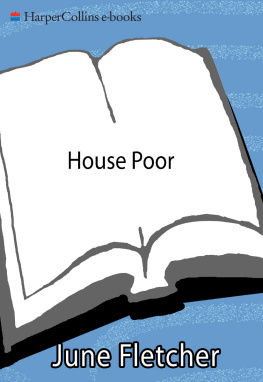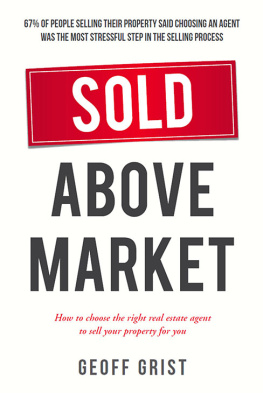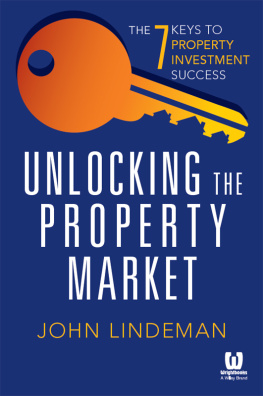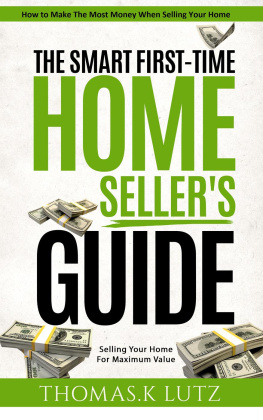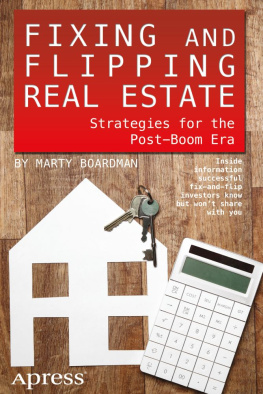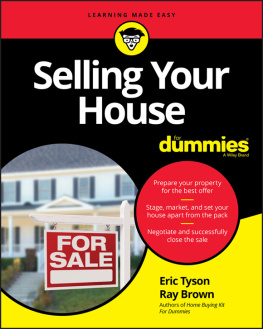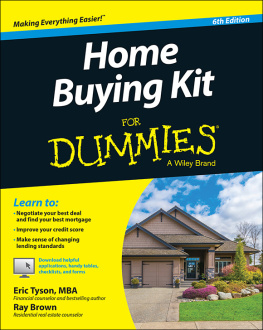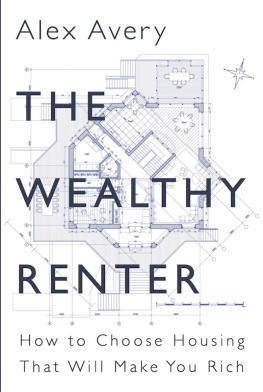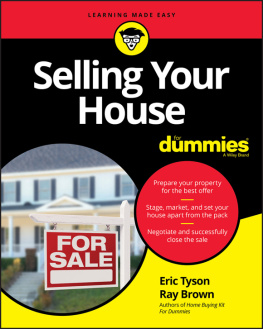Some books are based on years of scholarship and study; some on breaking newsthis book falls into the latter category.
Although rumblings of a housing bubble have been heard since the tech bubble exploded in 2000, it all seemed like distant thunder until the spring and summer of 2005. Thats when numerous industry insiders began to express serious concerns about double-digit home price increases, the proliferation of risky loans, and the explosion of real estate speculators. It all seemed eerily familiar, not just reminiscent of the tech bubble, but of speculative manias in the past. Nearly every media outlet in the country jumped on the story, with a similar message: The hot market is about to turn coldbeware.
Yes, but then what? Thats what I took as the starting point of this book, which was written during the crescendo of media attention on the subject. Its now pretty clear that the real estate boom is over. Its time to move from a speculative to a more sober attitude about our homes.
Having invested so much in our homes, its scary for most of us to think about what is going to happen now that the market has turned. I hope what Ive learned from more than two decades of real estate reporting, through several boom and bust cycles, will help you to survive, and even thrive, in the shifting economics of a postbubble world.
A Wild Ride
Anyone who has gambled in the housing market over the past few years has been on a roller-coaster ride. One year, youre fending off buyers clamoring to snatch up their homes in bidding wars; the next, youre slashing prices, repainting the bathrooms, and throwing in the Lexus just to get someoneanyoneto show up at your open house.
So if youre feeling queasy these days, I dont blame you. Housing, like any other investment, has always had its ups and downs. But ever since it started its upswing at the beginning of this decade, the ride has become more thrillingand also more dangerous. Thats when professional investors, soured on equities, began to snatch up beach houses instead of cyberstocks, shrinking supply and pushing up home prices. Seeing the fortunes that were being made flipping real estate, and watching mortgage interest rates fall, soon everyone wanted to hop aboard. Annual double-digit price growth became common in major coastal cities across America. From 2000 to 2005, some places, like Los Angeles and Miami, saw price gains of more than 150 percent.
The Double-Digit Club
From 2000 to 2005, many places throughout the country saw double-digit average annual price gains. Here are 10 in different states, compiled by Cambridge, Massachusetts, research company FISERV/CSW:
Place/Zip : Glendale, CA 91203
Median Home Price : $440,000
5-Year Appreciation : 174%
Place/Zip : Brigantine, NJ 08203
Median Home Price : $350,000
5-Year Appreciation : 146.9%
Place/Zip : Miami, FL 33138
Median Home Price : $340,000
5-Year Appreciation : 136.4%
Place/Zip : Manorville, NY 11949
Median Home Price : $440,000
5-Year Appreciation : 128%
Place/Zip : Warren, RI 02885
Median Home Price : $275,000
5-Year Appreciation : 127.6%
Place/Zip : Marion, MA 02738
Median Home Price : $550,000
5-Year Appreciation : 112.6%
Place/Zip : Boulder City, NV 89005
Median Home Price : $293,500
5-Year Appreciation : 109.5%
Place/Zip : Silver Spring, MD 20910
Median Home Price : $399,000
5-Year Appreciation : 106.4%
Place/Zip : St. Paul, MN 55108
Median Home Price : $228,000
5-Year Appreciation : 83.6%
Place/Zip : Hollis, NH 03049
Median Home Price : $350,000
5-Year Appreciation : 82.5%
But now as I write this, in the summer of 2006, housing has passed its peakand in some places, has already begun what could be a dizzying drop. Across the country, sales have slowed and supply is building up. (In fact, there are almost four million homes available for sale nationwide, and inventories are at record high levels.). Houses that used to sell in two days are lingering on the market for two months or longer. Nationally, homes are still appreciating, but the rate of price growth has slowed significantly, from 13.4 percent in the fourth quarter of 2005 to 9.5 percent in the first quarter of 2006. Some of the toniest and most expensive places in America, including Palm Springs, California, and Palm Beach, Florida, are showing slight price declines. It wont be long, I think, before homeowners in other places start to feel the competitive pressure, and cut their prices, too.
None of this is surprising, really. Pundits have been predicting the cooling of the superheated housing market for more than a year. So have many alert would-be buyers, like Seattle newlyweds John and Becky Mayer. They sat out the housing boom in a cramped one-bedroom apartment because they were worried that the dot-com debacle of the late 90s would be repeated soon in real estate. Theres only one way for this trend to go, and thats straight down, says Mr. Mayer.
The Mayers are probably right, because rampant speculation is a big reason that the housing market got overblown in the first place. In 2005, nearly a fourth of all homes were bought as investments, about four times the number found in less over-heated times, according to the National Association of Realtors. Many were novices to real estate investing who were taking advantage of historically low interest rates: folks like 31-year-old Lori Kim, who was able to buy a house and two condos in Las Vegas during the height of the boom, primarily using home-equity loans.
But the low interest rates that fueled speculationand also allowed seven out of 10 Americans to own their own homesare now inching up. In 2003 a fixed rate, 30-year mortgage could be had for 5.28 percent; at this writing, the average rate is 6.78 percent. According to the National Association of Realtors, in 2005, homeowners were paying an average of 24% more in principal and interest payments than they were just two years earlier: $1,040 a month, compared to $840. And thats not counting other monthly expenses that have risen over the past couple of years, like property taxes (a by-product of rising home prices) and energy costs.
Add stagnating salaries and a taste for high-ticket toys like plasma televisions to the picture, and you can see why attitudes and housing markets have changed so suddenly. People are no longer worried about making it rich as flippers; theyre worried about keeping a roof over their heads. The Joint Center for Housing Studies at Harvard University says about a quarter of middle-class homeowners, 9.3. million in all, are overextending themselves on housing.
A Northern Virginia real estate agent I know has been caught in the shifting currents. In the fall of 2005, he took out a large home-equity loan to buy an investment home for his college-bound son, planning to sell it quickly and use the profits to pay for his sons tuition. But now, six months later, prices in his market have softened so much, he cant even sell the home for what hed paid for itand meanwhile, the interest rate on his home-equity loan continues to tick up. I stay awake at night worrying and wondering what to do, he says.
Rising mortgage rates also are troubling for homeowners who stretched to buy during the boom and just squeaked by their lenders minimum requirements by taking adjustable or variable-rate loans. Although federal regulators are now cracking down on lenders who try to push these loans on people who really cant afford them, that doesnt help those whove already acquired them. And once these loans adjust upwards, as many are now doing, buyers who could just barely afford to make their initial payments will be pushed to the brink of bankruptcy.

